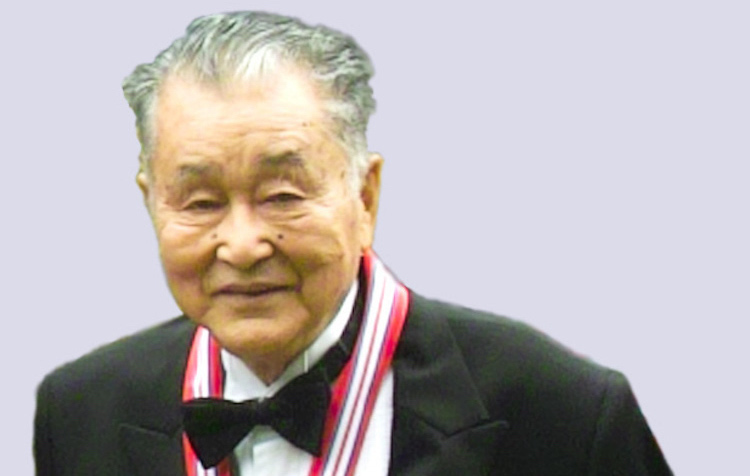Viewpoint by Dr. Teruo Hirose *
TOKYO (IDN) – Under the influence of my father, who was a post-war liberal in Japan, senator, Vice-Minister of Education and Parliamentary Secretary when Prime Minister Shigeru Yoshida signed the San Francisco Peace Treaty in 1952, I also aimed to become a diplomat to bring about peace in the societies of the world. However, I soon began to aspire to becoming a physician, which I saw as a profession that could save more lives than just one person. SPANISH | GERMAN | HINDI | JAPANESE
I studied abroad in the United States as a medical student and decided to pursue my studies in heart surgery, which was still a developing field. I had the opportunity to study cardiac surgery under professor Charles P. Bailey who founded the cardiac surgery unit at Hahnemann University in Philadelphia.
Basing myself on research at that time, I reached the conclusion that autologous tissue preservation is most desirable because rejection of the inserted tissue by the individual’s immune system cannot be avoided if foreign objects are inserted into a human body. Since then, I have applied this idea to all my operating procedures.
When I was studying in the United States, although technical research into heart transplants and artificial hearts was still ongoing, animal experiments had confirmed that long-term survival is impaired by rejection response. I therefore began insisting on repair of the heart valve using the patient’s own tissues.
In 1958, I succeeded in directly anastomosing the narrowed three main trunk coronary arteries with the patient’s autologous arterial vessels, both internal mammary and right gastrointestinal, by using a magnifying glass while the heart was beating.
Then, I performed surgery on 7000 Jehovah Witness Muslims, including 300 open-heart operations, without blood transfusion because they refused it for religious reasons. There were no deaths of patients whose blood concentration was as low as one-fifth of the normal concentration and haemoglobin level was 3g/dl (which accounted for a total of 100 cases), even with total resection of the pelvic organ, aortic aneurysm and other major surgery.
The reason I pressed ahead with operations without blood transfusion was because of my belief that I should improve surgical technique to meet the demand from patients who cannot receive blood transfusions due to religious reasons. Today, one-third of open-heart surgeries are performed without blood transfusion thanks to the improvement of artificial heart-lung machines.
Meanwhile, in the belief that best and most suitable medical care should be equally available to all mankind, I have visited 137 countries to analyse their health care systems and traditional medicine. I discovered that only 20 countries spend the equivalent of 3,000 U.S. dollars per capita on health care and the rest of the countries – the so-called developing or emerging countries – spend between 100 and 300 U.S. dollars on health care.
This means that 70 percent of mankind is forced to rely on ethnic traditional medicine. Furthermore, the erosion of medical values by doctrinal force of the three major religions is interfering with the health support that natives have built through historical tradition.
It is therefore necessary to save harmless conventional religion and traditional medicine for the welfare and health of people, while eliminating, among others, dangerous religious beliefs, superstition, female circumcision and child pregnancies and promoting integration with modern medicine.
Of course, these countries first have to strive to prevent infection by constructing adequate safe water supply, sewerage and road networks, improving the food situation, and setting up modern medical clinics with at least basic equipment.
In order to achieve equal health care, before spreading modern medical technology, it is also necessary to understand each country’s community, religion and traditional medicine correctly, then to enlighten them with valid choices. This requires not only health care professionals but also politicians and experts in various fields of social science coordinated by an organisation with a global perspective, such as the World Health Organisation. [IDN-InDepthNews – 30 July 2016]
IDN is flagship agency of the International Press Syndicate.
*Dr. Teruo Hirose is a Cardiac Surgeon, Chairman President, Association for International Integrated Medicare, and Professor Emeritus at Shumei University. He graduated from Tokyo high school (currently Faculty of Liberal Arts, University of Tokyo) and Faculty of Medicine at Chiba University. He studied abroad in the United States and had been researching cardiac surgery in Chicago and Philadelphia. He was appointed as clinical surgery professor at the New York Medical College (until 1989). Chair of Medical management department at Shumei University, then appointed as chief professor (until 2006). He succeeded in open-heart surgery without bleeding for the first time in the world. He is the first Japanese who won a gold medal from the United States Medical Association. He is a world authority on cardiac surgery field.
This article is part of IDN’s media project jointly with Global Cooperation Council and DEVNET Japan.

